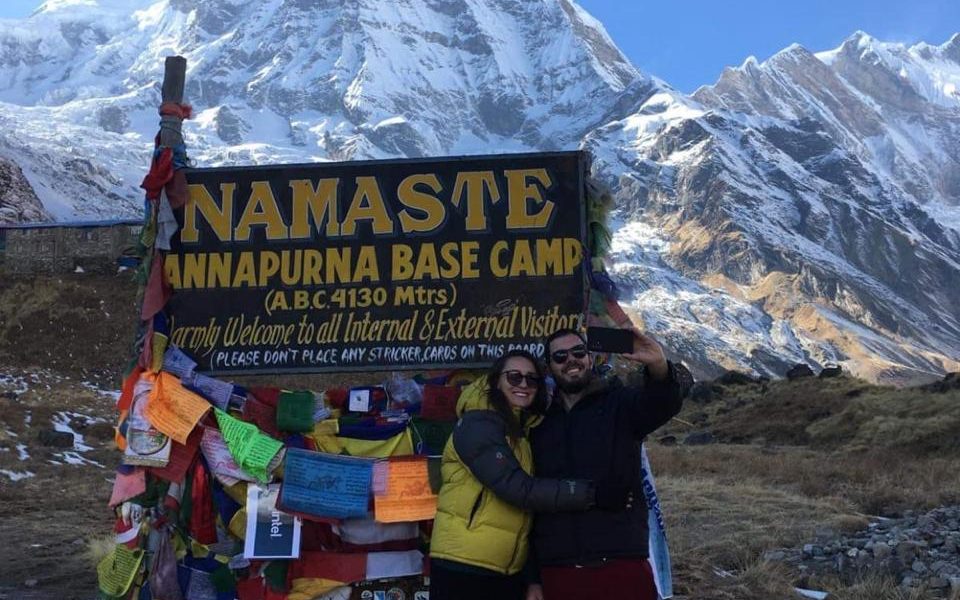Annapurna Base Camp Trek Tips
Here are some essential tips to help you make the most of the Annapurna Base Camp (ABC) trek:
Physical Preparation
- Train Ahead: Start a fitness routine that includes cardio, strength, and endurance training at least a few months before your trek.
- Practice Hiking: Try to do some day hikes or weekend treks to get accustomed to walking long hours on varied terrain.
Altitude Acclimatization
- Ascend Slowly: Take your time, especially above 2,500 meters to prevent altitude sickness.
- Hydrate Well: Drinking plenty of water is key to reducing altitude sickness risks.
- Listen to Your Body: If you experience symptoms like headaches, nausea, or dizziness, rest and avoid ascending further until you feel better.
Packing Essentials
- Layered Clothing: The weather in the mountains changes rapidly. Pack thermal layers, a down jacket, and a rainproof outer layer.
- Comfortable Trekking Shoes: Choose waterproof, broken-in trekking boots with good ankle support.
- Sleeping Bag: A -10°C (14°F) rated sleeping bag is recommended for higher elevations, as temperatures can drop significantly at night.
- Other Essentials: Trekking poles, sunscreen, hat, gloves, and a reusable water bottle.
Plan for Communication and Navigation
- Maps or Guide: You can trek independently with a good map or GPS, but hiring a guide can enhance your experience and offer support if you’re unfamiliar with the area.
- Connectivity: The Internet is available in some teahouses, but it can be spotty and slow at higher altitudes. Consider buying a local SIM card with data in Pokhara.
Permits and Cash
- Bring Enough Cash: ATMs are unavailable on the trail. Budget carefully and carry extra for emergencies.
- Get Permits in Advance: You need a TIMS Card and an ACAP Permit, which can be obtained in Kathmandu or Pokhara.
Respect Local Culture and Environment
- Dress Modestly: In villages, modest clothing is respectful.
- Practice Leave No Trace: Carry out your waste, avoid plastic where possible, and respect the local environment.
- Support Local Businesses: Purchasing locally helps sustain the communities.
Food and Hydration
- Stay Hydrated: Drink plenty of water, but also consider purification tablets or a filter as bottled water is expensive and less eco-friendly.
- Eat Well: Local meals like dal bhat are nourishing and provide good energy for trekking.
Weather Awareness
- Check Conditions: Conditions in the mountains can change quickly, so be prepared for rain, snow, or sunshine.
- Best Season: The best times to trek are spring (March to May) and autumn (September to November), which offer clear skies and comfortable temperatures.
Mental Preparedness
- Expect Simplicity: Teahouses are basic, with shared facilities. Prepare for limited amenities like heating, hot showers, and electricity.
- Be Flexible: Weather, health, and fatigue may alter your plans. Embrace the journey and be open to unexpected changes.
These tips will help you enjoy the ABC trek safely and meaningfully, allowing you to immerse yourself fully in the breathtaking landscapes and unique culture of the Annapurna region. The Annapurna Base Camp (ABC) Trek is one of the most popular and scenic treks in Nepal, drawing trekkers from around the world with its stunning landscapes, diverse ecosystems, and rich cultural experiences. Here’s an overview of what you can expect:




